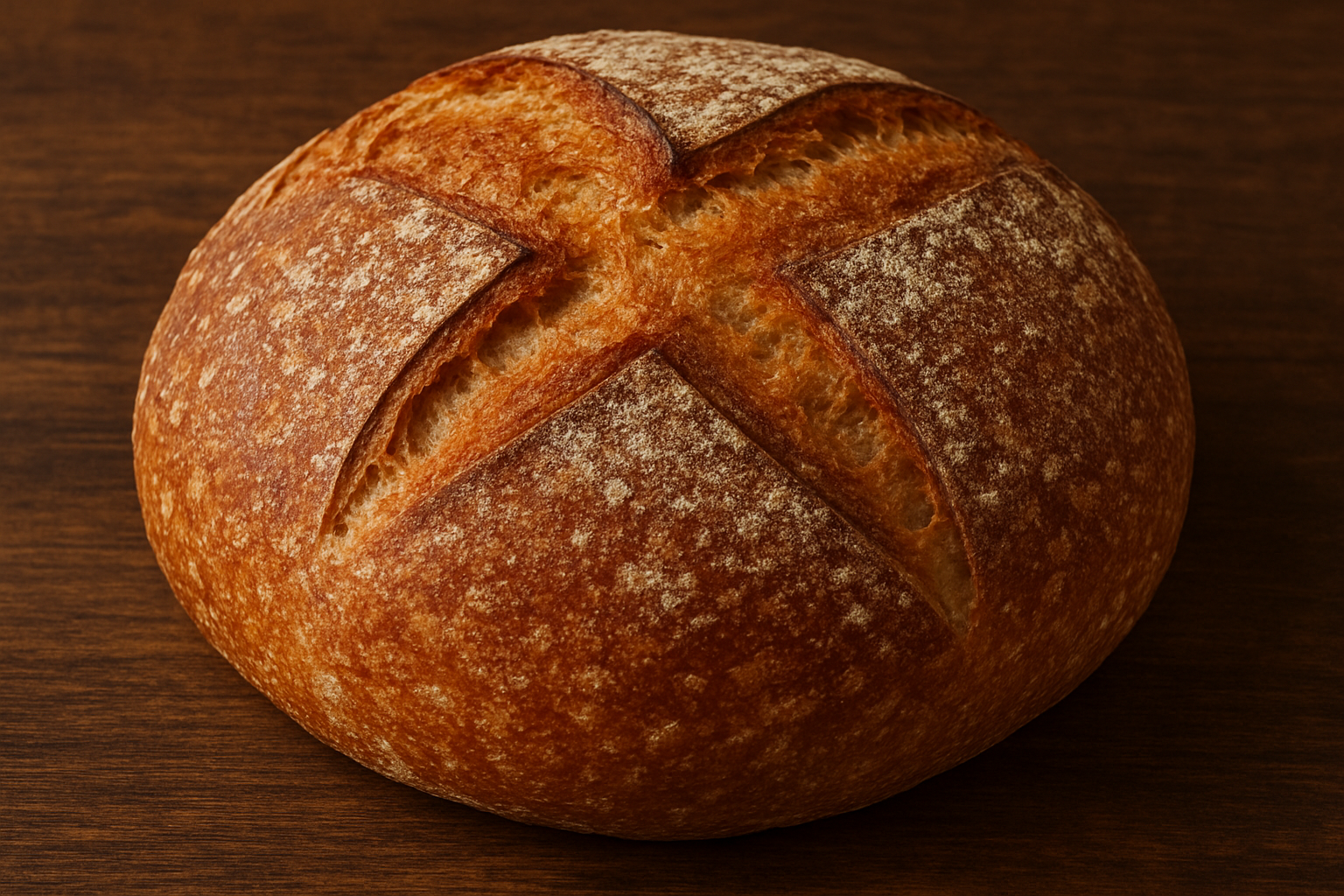1. What is a Natural Starter?
A natural starter (also known as sourdough starter or levain) is a living culture of microorganisms used in place of commercial yeast. It is created by mixing flour and water and allowing the naturally occurring wild yeasts and lactic acid bacteria from the air to feed on the nutrients in the flour and multiply.
2. The Health Effects of the Fermentation Process
As these living yeasts and bacteria slowly ferment the bread dough over a long period, they create several health benefits not seen in regular bread.
– Improved Digestibility: During fermentation, the microorganisms pre-digest the proteins (gluten) and carbohydrates in the flour. This makes sourdough bread easier for our bodies to digest than regular bread.
– Improved Glycemic Response: The lactic acid bacteria produce lactic acid during fermentation. This acidic component lowers the bread’s glycemic index (GI), helping blood sugar to rise more gradually after consumption.
– Increased Nutrient Absorption: The fermentation process neutralizes phytic acid, an anti-nutrient found in grain bran, which increases the body’s ability to absorb minerals (like magnesium and zinc) from the bread.
3. Conclusion
A natural starter is not just an ingredient for sour flavor. It plays a key role in transforming the bread into a healthier food through the action of living beneficial microbes. For these reasons, even if made with the same flour, sourdough bread can be a better choice for blood sugar management and digestive health than bread made with commercial yeast.
Summary: The ‘natural starter,’ the core of sourdough bread, is a mass of living beneficial microbes that provides important health benefits, such as aiding the bread’s digestion and moderating its glycemic response.


Leave a Reply